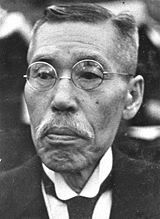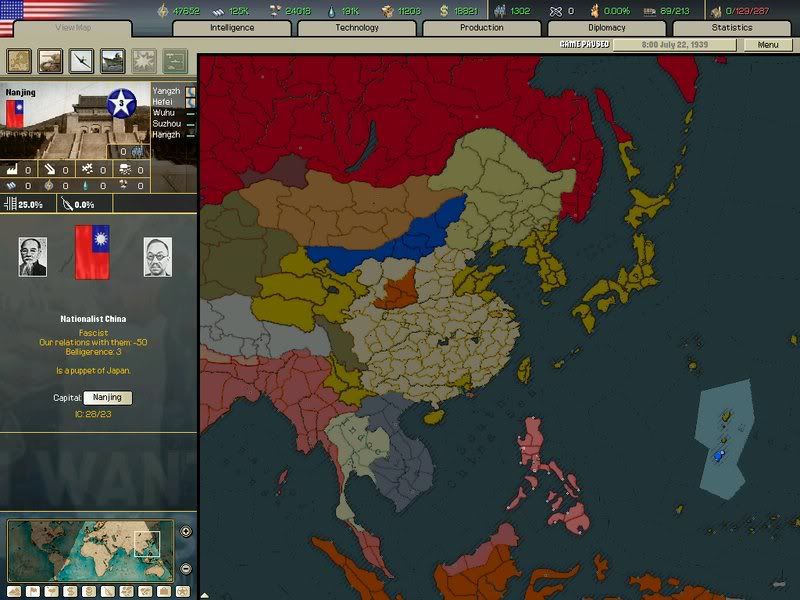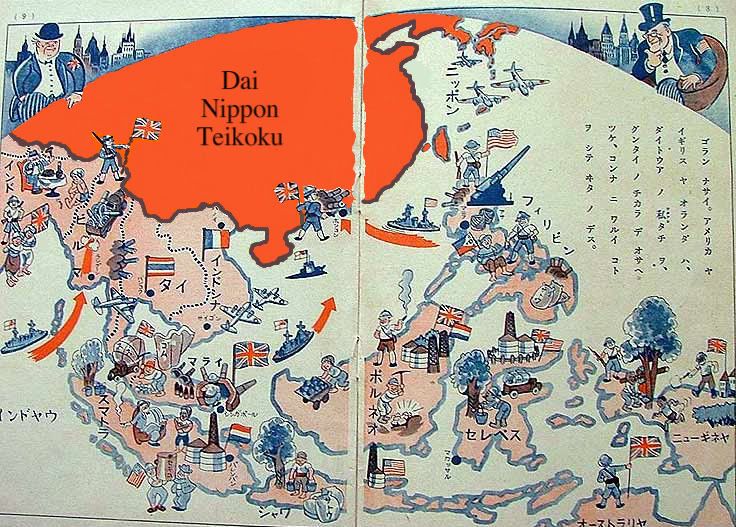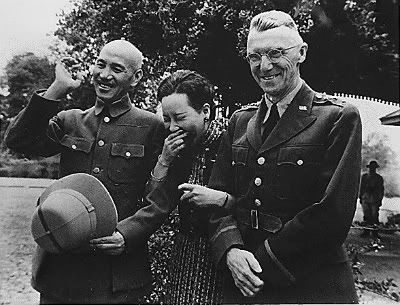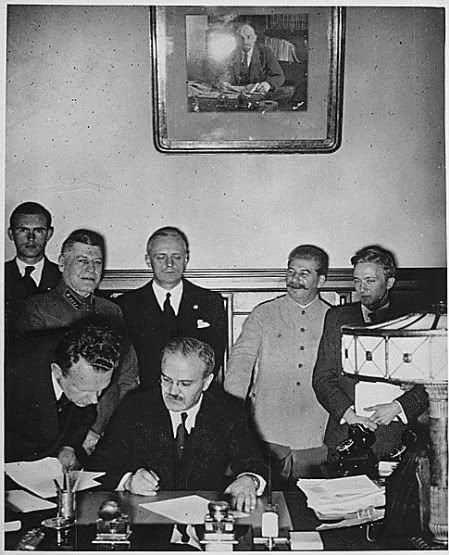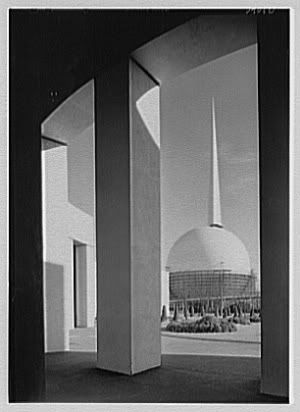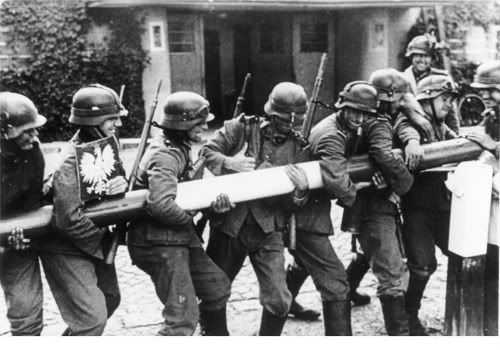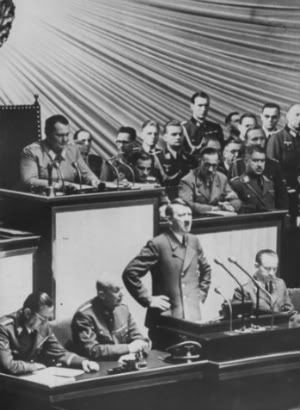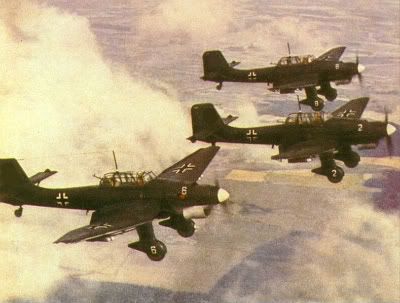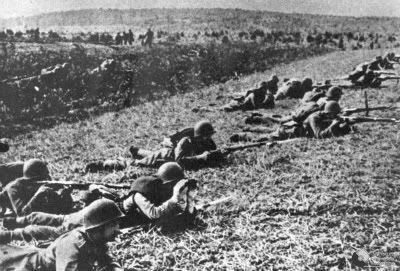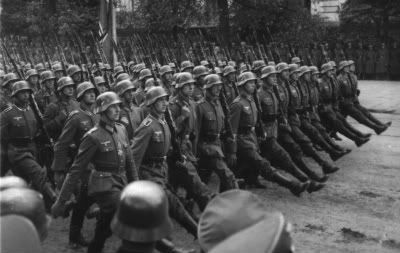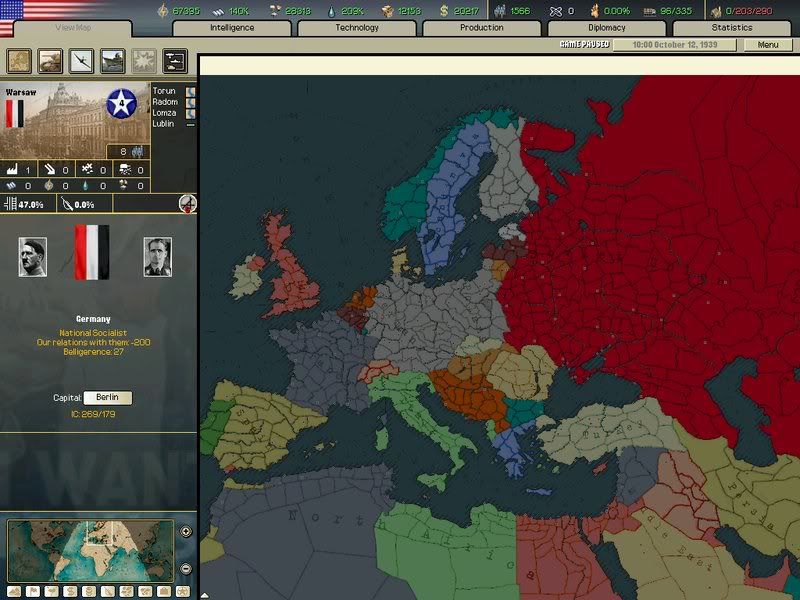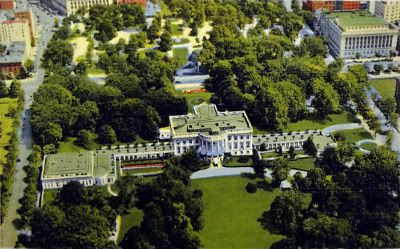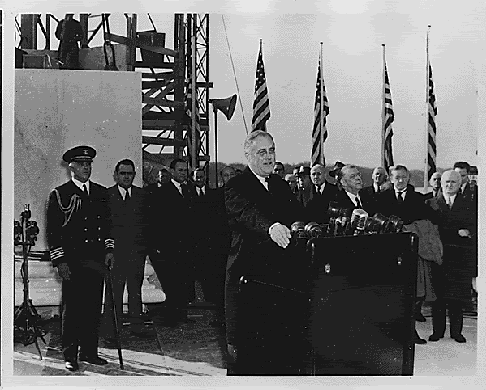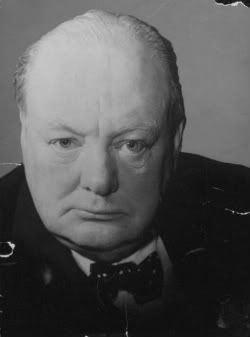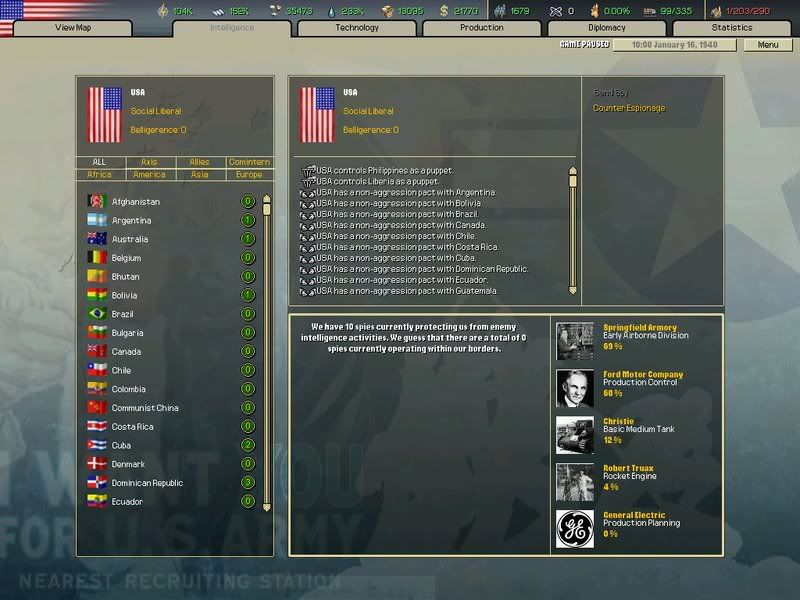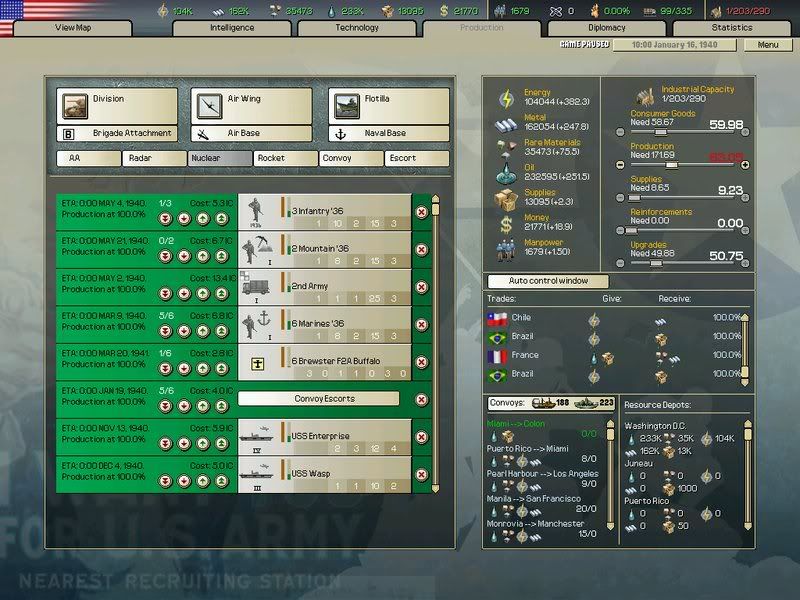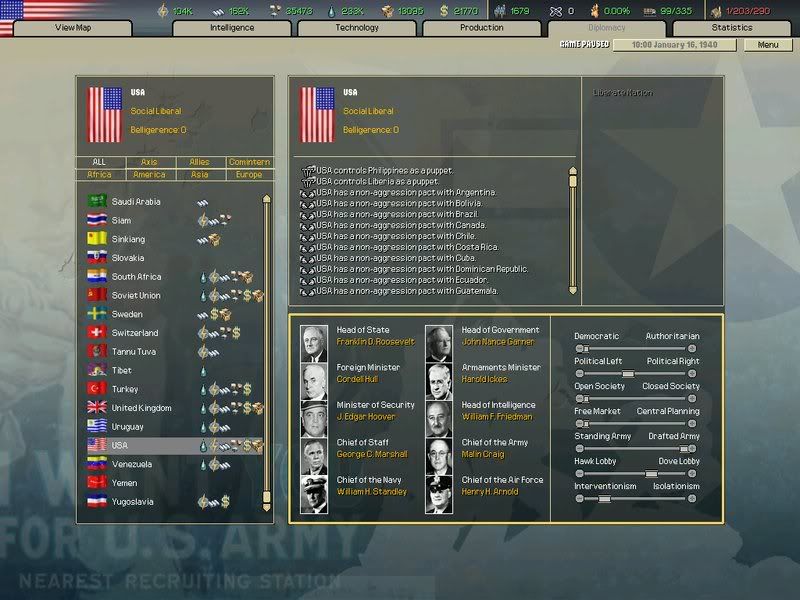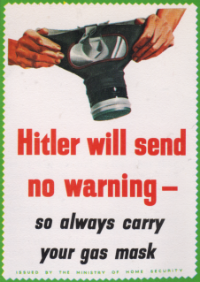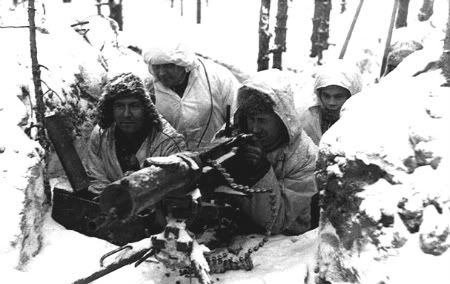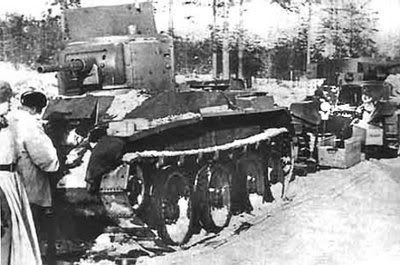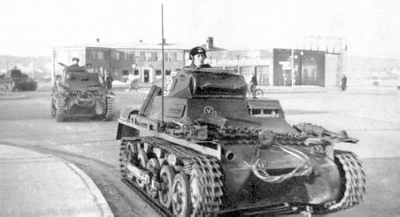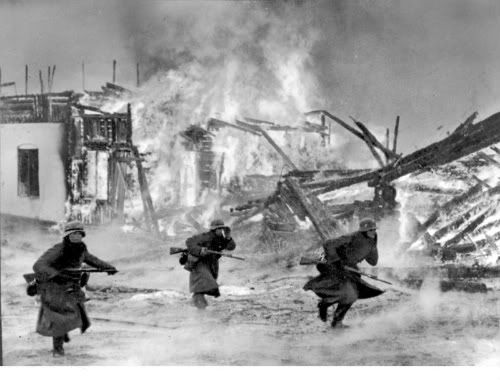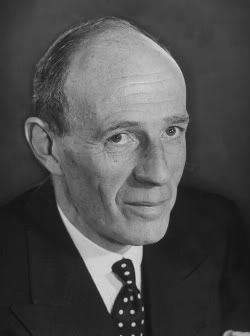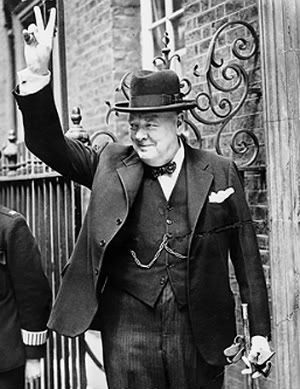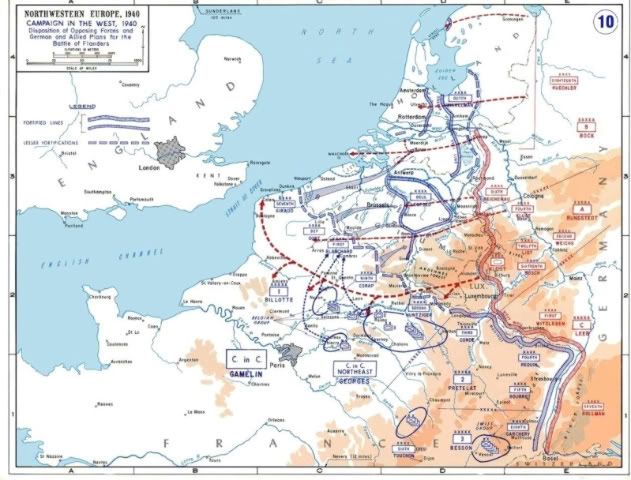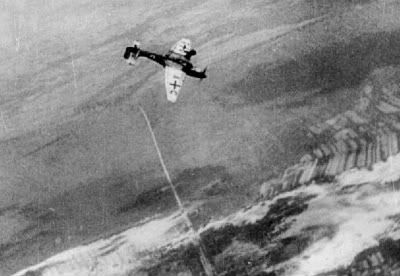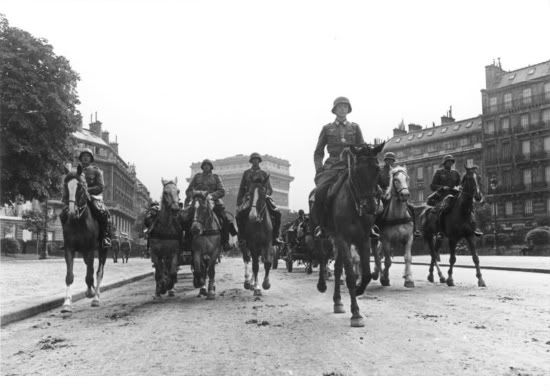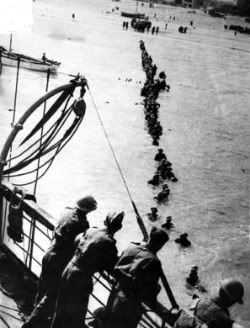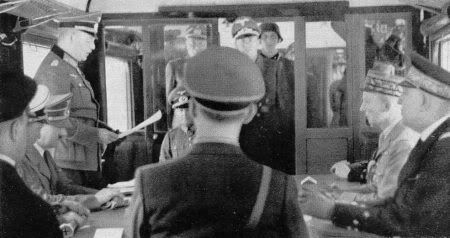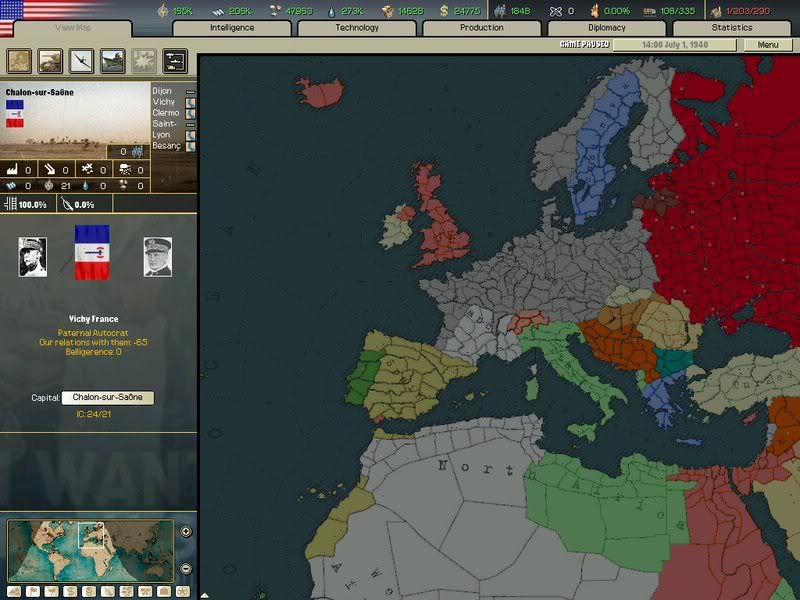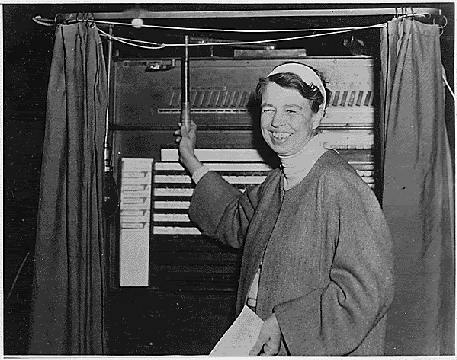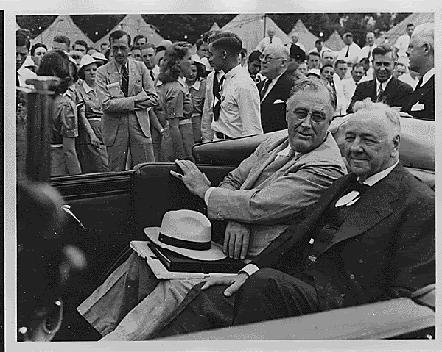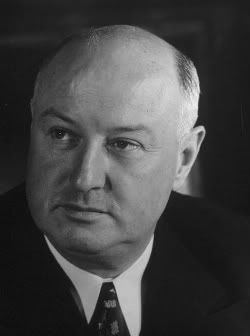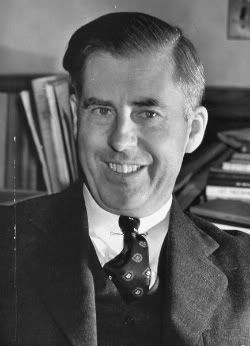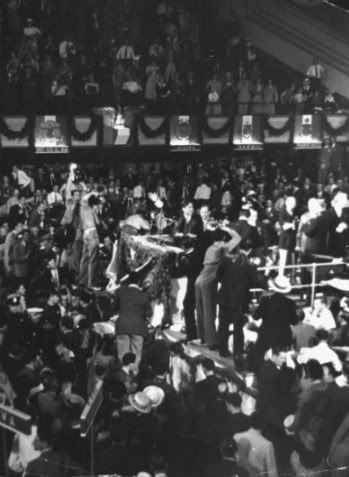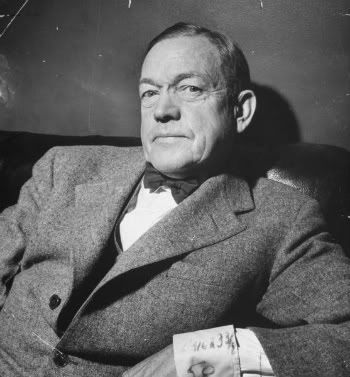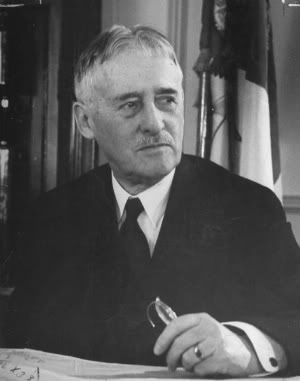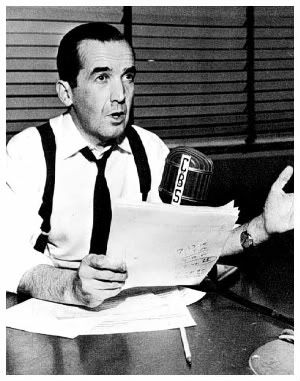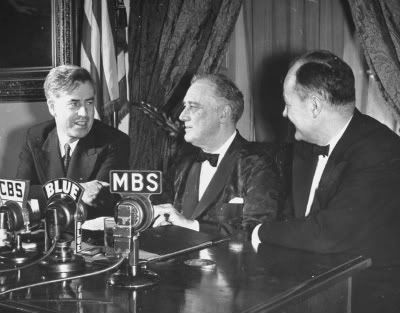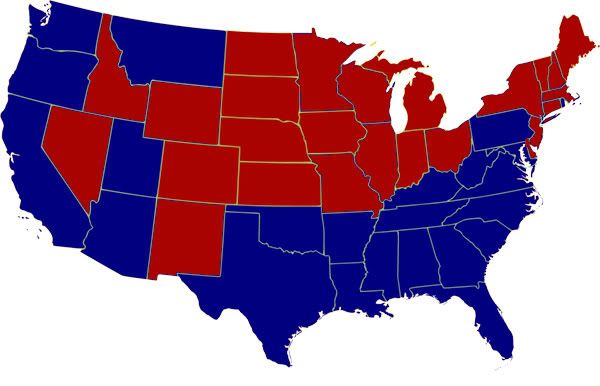Karelian: The Soviet Union hasn't conquered Latvia yet. That's why it still exists.
Enewald: Charles de Gaulle - an ally you sometimes wish you could shoot.
--------------------------------------------------------------------------
The Election of 1940
In the fateful summer of 1940, Western Europe was conquered by the Third Reich, Churchill vowed to continue fighting the Germans who were now just across the English Channel, and Stalin occupied the Baltic States and the Bessarabia region of Romania. Although events across the Atlantic shifted public opinion towards greater sympathy for the Allies, the American people wanted their President to keep the country out of the war.
Events overseas would serve as a backdrop for the upcoming Presidential election. The main question facing the Democratic Party was whether or not Roosevelt would step down. Ever since President George Washington said
“No!” to the idea of a third term in 1796, every succeeding President had been expected to leave the White House at the end of their second term. Although some Presidents – like Ulysses S. Grant and Theodore Roosevelt – had flirted with the idea of a third term, the two-term tradition remained firmly entrenched. Men like Secretary of State Hull and Democratic National Committee Chairman James Farley assumed Roosevelt would stick with tradition and launched their bids to win the Democratic Presidential nomination from him.
However, the battles in Western Europe gave the President the impression that only he possessed the experience needed to defend the country from the Nazis. Acting coyly, FDR dropped the word into the right ears that he would break with tradition if he could be drafted to do so. At the Democratic National Convention held in Chicago, Illinois during mid-July, party bosses carefully crafted a “Draft Roosevelt” movement. Amid planted shouts of
“We want Roosevelt!” the President easily scored an unprecedented third nomination on the first ballot. He then addressed the convention via radio on July 19th:
“Swiftly moving foreign events made necessary swift action at home and beyond the seas. Plans for national defense had to be expanded and adjusted to meet new forms of warfare. American citizens and their welfare had to be safeguarded in many foreign zones of danger. National unity in the United States became a crying essential in the face of the development of unbelievable types of espionage and international treachery.
Every day that passed called for the postponement of personal plans and partisan debate until the latest possible moment. The normal conditions under which I would have made public declaration of my personal desires were wholly gone.
And so, thinking solely of the national good and of the international scene, I came to the reluctant conclusion that such declaration should not be made before the national Convention. It was accordingly made to you within an hour after the permanent organization of this Convention.
Like any other man, I am complimented by the honor you have done me. But I know you will understand the spirit in which I say that no call of Party alone would prevail upon me to accept reelection to the Presidency.
The real decision to be made in these circumstances is not the acceptance of a nomination, but rather an ultimate willingness to serve if chosen by the electorate of the United States. Many considerations enter into this decision.”
Another decision Roosevelt had to make was what to do with his Vice President. Resentful that Garner had turned against him during the second term, FDR had no qualms about dumping the deadweight Texas conservative from the ticket. For his new running mate, he turned to an outspoken liberal: Secretary of the Agriculture Henry A. Wallace. When conservatives within the Democratic Party balked at the idea of a radical, eccentric Vice President, Roosevelt threatened to retire to Hyde Park in January 1941 if he didn’t get his way. He then dispatched his wife to the convention to rally support for Wallace. Eleanor gently reminded the delegates that this was
“no ordinary time” and that there was
“no time for weighing anything except what we can best do for the country as a whole.” With the First Lady by his side, Wallace won the nomination. Still, his presence on the ticket left a bitter taste in conservative mouths.
On the other side of the political aisle, the Republicans arrived in Philadelphia, Pennsylvania on June 24th deeply divided. The isolationist wing wanted to stay out of the war at all costs; the interventionist wing felt America had the duty to support the United Kingdom and give them all aid short of war. There were three frontrunners for the nomination: Ohio Senator Robert Taft, Michigan Senator Arthur Vandenberg, and Manhattan District Attorney Thomas E. Dewey. Although they were all good men, they all suffered from political weaknesses:
-Dewey, at age thirty-eight, was seen as being too young to deal with the complex global situation
-Vandenberg was seen as being nothing more than a low-key favorite son from the Great Lakes State
-Taft, the son of former President William Howard Taft, was seen as being too conservative and isolationist to have broad national appeal
Looking at their slate of lackluster candidates, the G.O.P. leaders shared the opinion that all three would simply be crushed by Roosevelt in the general election. With the Nazis on an unstoppable rampage, the Republicans realized they needed a dark horse candidate who could appeal to the common man (Herbert Hoover failed to do so in 1932 and got thrown out of office) and could be an energetic campaigner (Alf M. Landon conducted his 1936 campaign with the energy of a dead light bulb). Fortunately, they had their ideal man waiting in the wings.
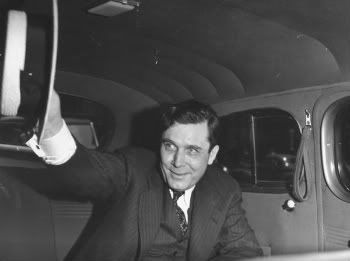
His name: Wendell Willkie. A Wall Street-based industrialist from Elwood, Indiana, he had been a Democrat until the TVA battle converted him into a Republican. Unlike the other three leading contenders, Willkie had no experience at running for public office. What he lacked in experience he made up for with his personality. Charismatic, Willkie possessed a folksy Midwestern ease which endeared him to those looking for someone genuine. Journalist John Gunther called him
“one of the most lovable, most gallant, most zealous, and most forward-looking Americans of this – or any – time.” Willkie also supported much of the New Deal, which greatly pleased progressive Republicans who were sick and tired of listening to the
“we must kill the New Deal” rhetoric of the conservatives. Perhaps most importantly, he was a forceful and outspoken advocate of aiding the Allies. As he saw it,
“England and France constitute our first line of defense against Hitler. If anyone is going to stop Hitler, they are the ones to do it. It must therefore be in our advantage to help them every way we can, short of declaring war.”
With the British fighting for their survival, Willkie’s willingness to cross isolationists – who believed that as long as Hitler didn’t attack the United States, it didn’t matter if he controlled the rest of the world – made him an attractive Presidential candidate. Soon, a coalition of like-minded Republicans, the leading press barons of the era, and a national grassroots network of so-called “Willkie Clubs” had formed behind the irresistible demand that
“We want Willkie!” As a result, during the volatile convention in Philadelphia, Willkie steadily gained momentum until he won the Presidential nomination on the sixth ballot. Addressing his boisterous and numerous supporters, the newly-minted G.O.P. nominee told them he was
“very happy, very humble, and very proud.”
Acting on the advice of Republican National Committee Chairman Joseph William Martin, Jr., Willkie selected well-liked Senate Minority Leader Charles McNary of Oregon as his ticket-balancing running mate. Despite the fact that he had tried to stop Willkie from winning the nomination and dismissed the Vice Presidency as
“a damn totem pole”, McNary ultimately accepted the slot out of a sense of party loyalty.
When the President learned who his Republican opponent would be, he had mixed feelings. On the one hand, he found it easy to respect Willkie. On the other hand, unlike Hoover and Landon, the
“simple barefoot lawyer from Wall Street” – Secretary of the Interior Harold Ickes’ description of him – promised to give FDR a formidable challenge in the fall campaign.
“I have the general opinion that the Republicans have nominated their strongest possible ticket,” Roosevelt confided to his cabinet. However, Willkie wasn’t the only problem facing him during that summer. There was, of course, the war in Europe. To tackle that problem, Roosevelt first added two interventionist Republicans to his administration to strengthen his hand:
-1936 Vice Presidential candidate Frank Knox as Secretary of the Navy
-Hoover’s Secretary of State Henry L. Stimson as Secretary of War
Next, the incumbent sought to supplement the immense military buildup. He urged Congress to enact the first peacetime draft in American history. Despite fury from the isolationists, public opinion swelled behind the idea of a selective training bill. Congress debated the issue and on September 14th, passed the bill. Two days later, Roosevelt signed the Selective Training and Service Act into law. Under the Act, men between the ages of twenty-one to thirty-five were required to register with local draft boards. From there, men were selected through a lottery system to serve the military for twelve months.
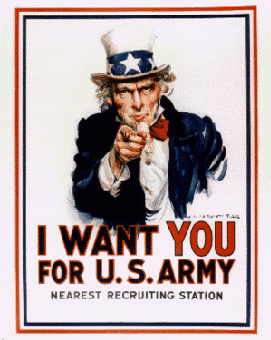
Finally, Roosevelt turned to a matter which had been pressing him for weeks. With his country fighting for her survival, Churchill prodded his American friend to send some help. An island nation, the United Kingdom was particularly vulnerable to the menacing threat U-Boats (German submarines) posed against her vital trade routes. If the U-Boats succeeded in cutting off shipping, the United Kingdom would run out of imported goods and lose her ability to fight effectively. What Churchill wanted were destroyers for the Royal Navy. He argued that having the destroyers would greatly help the Royal Navy in fighting the U-Boat threat. Roosevelt responded to the request by dragging his feet. He was constantly afraid of coming across as a warmonger if he did too much too quickly. However, he couldn’t put it off forever…especially as the British situation grew increasingly desperate. That is when a proposal emerged: what if fifty mothball destroyers were transferred from the United States Navy to the Royal Navy in exchange for the British granting land rights in their North American territory for the establishment of American military bases on ninety-nine-year rent-free leases? It seemed to be a win-win solution which satisfied both Roosevelt and Churchill. On September 2nd, the Destroyers for Bases Agreement went into effect.
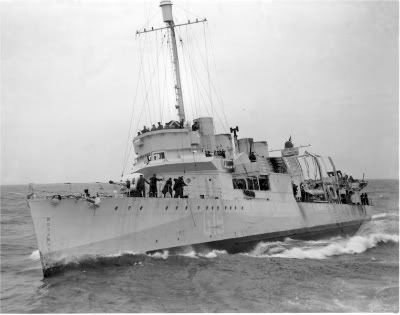
The agreement came at a critical time for Churchill. In addition to the Battle of the Atlantic, he also had to contend with the devastating onslaught of the Luftwaffe. Hitler was determined to force the British to the peace table, even if it meant bombing the hell out of London. Throughout the remainder of 1940, the Royal Air Force did her best to defend the homeland from the German aerial assault in the Battle of Britain. Across the Atlantic, Americans closely followed the Blitz through riveting “you-are-there” radio broadcasts from one of the most prominent broadcast journalists of the era: Edward R. Murrow of CBS. Opening with his signature line
“This is London”, Murrow electrified his radio audience with vivid details of the Blitz as it happened around him. For example:
“We are told today that the Germans believe Londoners, after a while, will rise up and demand a new government, one that will make peace with Germany. It’s more probable that they will rise up and murder a few German pilots who come down by parachute.”
While Roosevelt attended to his Presidency, Willkie strategized on how to gain it. After walking away from the convention with the nomination in his pocket, Wendell and his wife Edith traveled to Colorado Springs, Colorado. While resting at the luxurious Broadmoor Hotel, the Republican candidate assembled his campaign team. He also mapped out the road he hoped would lead to victory in November. For his very first political campaign, Willkie chose to focus on two major themes: the war in Europe and the third term question. On the third term question, Willkie believed that
"if one man is indispensable, then none of us is free."
As for the second major theme, Willkie pledged a strong stand against Hitler. He would portray himself as the “peace through strength” candidate who – if elected – would do everything in his power to make America strong at home and to keep the Nazis at bay by giving the United Kingdom whatever she needed to stay alive.
“As we have seen,” Willkie explained to Republican Governor Harold Stassen of Minnesota (who served as chairman of the campaign advisory committee),
“Hitler is always looking for easy conquests. If we can keep the British afloat for one or two more years, he will probably get impatient and perhaps might seek peace with a nut he can’t crack. We can’t get into a war that’s over.”
As far as the New Deal was concerned, he was okay with most of it. All Willkie planned to do was to cutback on the massive spending involved and look for ways to improve the programs themselves. He also wanted to enact his revenge on TVA for what it did to his Commonwealth and Southern Corporation – although he wisely kept that to himself. Against his rival, Willkie intended to attack Roosevelt for not only violating the two-term precedent but also for his insistence on being slow when it came to foreign policy.
“If the President is given a third term,” he planned to warn voters,
“He will get the United States into a war with Germany because the Nazis will be in London and there will be nothing to stop them from sending their ships across the Atlantic to shell our East Coast cities…or worse.”
He also counted on picking up votes from Democrats who were dissatisfied with the President for one reason or another – whether it was over the court-packing scheme, sweeping aside worthy candidates to give himself an unheard-of shot at twelve years in office, forcing the question-raising Wallace onto the ticket, etc. Advised to concentrate on the industrial Northeast and the rural Midwest (traditional Republican regions), Willkie hit the campaign trail in mid-August. Although some “Old Guarders” worried about this unconventional political maverick, others felt he represented the new direction the party should take. What everyone agreed on was that the next couple months would be interesting ones.
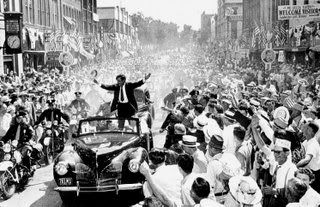
While Willkie was busy barnstorming the country (the country outside the Democratic South, that is) telling the voters what he would do as President, the incumbent President rarely left the White House. For all the Willkie hype, the Gallup Poll showed the President being ahead of him by a ten-point margin. Confident of victory, Roosevelt thereby ignored the Republican threat and focused on implementing a military draft and trading destroyers for bases with the United Kingdom. He wanted to portray himself as the statesman above the political fray. However, he couldn’t turn a blind eye to the demise of his lead in the poll numbers. Although Willkie was unpolished, made a few poor campaign decisions, and occasionally embarrassed himself by making bad statements, he found a winning issue with voters. His “peace through strength” strategy turned out to be a good one. As much as the American people wanted to stay out of the war in Europe, they didn’t want their President to be weak-kneed about it either. As a result, more and more people found themselves looking at Willkie as an attractive alternative…especially since FDR seemed to validate the attack that he
“is a silent man in Washington who cannot make the same offer I can.” By the middle of October, the Gallup Poll showed him ahead of Roosevelt by six points. Realizing he might actually lose re-election at this rate, the President finally decided to take on Willkie and the Republicans. The final two weeks of the fall campaign became a tenacious duel between the two men.
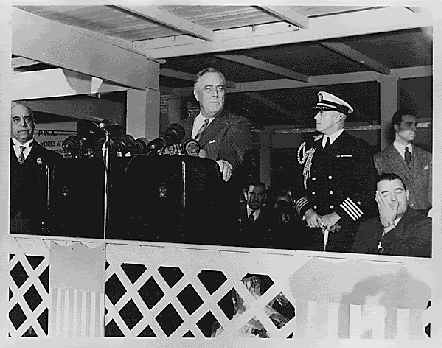
In the final sprint to the finish, both men gave it their all. Willkie energetically crisscrossed the country, straining his voice along the way. Roosevelt only made five campaign speeches. Roosevelt defended his record. Willkie supported the Selective Training and Service Act and the Destroyers for Bases Agreement, but aggressively attacked the President for not having done them sooner. Willkie accused the President of seeking a third term without a concrete plan for keeping America out of the war. Roosevelt accused Willkie of being reckless and not understanding the fine art of pacing yourself. Roosevelt alleged the Republican Party was soft on national defense. Willkie alleged Roosevelt was soft with national defense. Willkie pledged to keep the United States out of the Second World War with decisive leadership. Roosevelt pledged to keep the United States out of the Second World War…without really specifying how. Roosevelt kept quiet about Willkie’s long-standing extramarital relationship with wealthy book editor Irita Van Doren (partly because FDR had his own martial skeletons in his closet). Willkie kept quiet about Wallace’s attraction to mysticism. Willkie frequently had rotten fruit and produce thrown at him. Roosevelt didn’t, but he felt the physical attacks were crossing the line. Roosevelt had the United States Ambassador to the United Kingdom, Joseph P. Kennedy, on his side. Willkie had the President of the Congress of Industrial Organizations, John L. Lewis, on his side. By the eve of Election Day, the two men had done everything they could to explain why they should win and not the other guy.
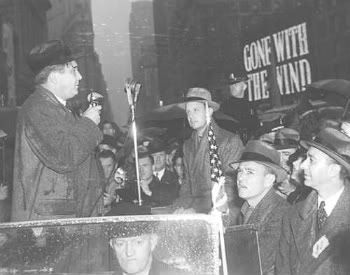
Election Day – November 5th – arrived in the United States like an eagerly anticipated movie. With the Gallup Poll showing Roosevelt having closed the wide gap Willkie once enjoyed, political experts knew the election would be extremely close. Not since Democratic President Woodrow Wilson defeated Republican challenger Charles Evans Hughes in 1916 by 1,900 votes (all in California) had the outcome been so unpredictable. A record fifty million Americans went to the polls to cast their votes. Among them were the two major Presidential candidates. Afterwards, Roosevelt settled in at Hyde Park while Willkie hunkered down at the Commodore Hotel in New York City. Both men were nervous as the early returns came in that evening. The news they carried worried FDR. It wasn’t just that Willkie was ahead throughout the Northeast, but that major states like Massachusetts and New York were leaning his way. The President simply couldn’t afford to lose them. When those two states did go Republican, Roosevelt realized he was in trouble. Asking to be alone, he ordered everyone out of the dining room and strictly told a Secret Service agent to stand outside the door and not let anyone in no matter what. Sitting by himself, the President tabulated the returns. Only winning Pennsylvania and Rhode Island, he estimated he had to gain pretty much every other state to counterbalance the Willkie landslide in the Northeast. Fortunately, the South remained a safe bet – except for Delaware, every state went Democratic as expected. However, the tide failed to turn in FDR’s favor once the Midwestern states started falling into place. As the entire region became a G.O.P. stronghold, Roosevelt knew he had lost his bid for an unprecedented third term. Although he undoubtedly saved the United States from total economic collapse, he failed to convince enough voters to let him steer the ship of state through the World War Two hurricane. Flinging the dining room door open, Roosevelt wheeled himself through the doorway and announced that he was preparing to concede the election.
“We put up a tremendous fight,” he told his friends and family,
“But the people really do want Wendell. I have clearly lost, but I am not going to be like Hoover. I am not going out a bitter man. I will work with my successor and help him in anyway I can.”
After the remaining states were decided and Willkie was declared the official winner of the 1940 Presidential election, Roosevelt addressed the nation over radio from Hyde Park to deliver a gracious and conciliatory concession speech:
“I congratulate Wendell Willkie and Senator Charles McNary for the victory they achieved tonight. We are a unified country. The two-party system is secure. The world has seen fair and free democracy in action. Despite our differences of opinion, as Thomas Jefferson would say, we are all Democrats. We are all Republicans. We are all Americans. As such, we will sustain the progress of a representative democracy, asking the Divine Blessing for guidance as we face the future with courage and with faith. I look forward in the months ahead to work with Mr. Willkie to transfer the weighty power of this office from my hands to his.”
Shortly thereafter, a triumphant Willkie entered the Commodore’s Grand Ballroom and was swamped by his supporters and staffers. His voice still hoarse from campaigning, he was unable to speak above the excited chant
“President Willkie! Four years with Willkie!” He simply beamed with pride and enjoyed the sweet taste of victory. After all, he just accomplished what no one else could do: he defeated Franklin D. Roosevelt. By the next morning, the final votes had been counted. In the electoral vote count, Willkie won 283 electoral votes over Roosevelt’s 248. Willkie also set the record for the most popular votes ever gained by a Republican candidate: over twenty-five million. By contrast, FDR was just one million popular votes behind him. Despite losing the White House to the Republicans, the Democrats were at least able to maintain their majorities within both houses of Congress.
Willkie/McNary (Republican/Red) – 283 Electoral Votes – 25 States Carried – 25,340,292 Popular Votes – 50.78% of Total Votes
Roosevelt/Wallace (Democratic/Blue) – 248 Electoral Votes – 23 States Carried – 24,322,289 Popular Votes – 48.74% of Total Votes
--------------------------------------------------------------------------
The election of Wendell Willkie in 1940 - the point of Presidential deviation for this AAR has been reached.



